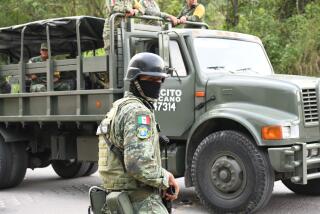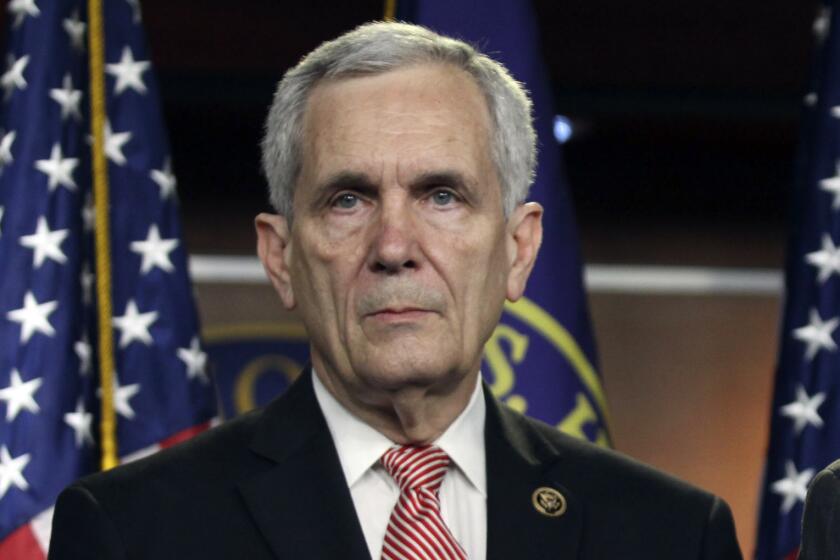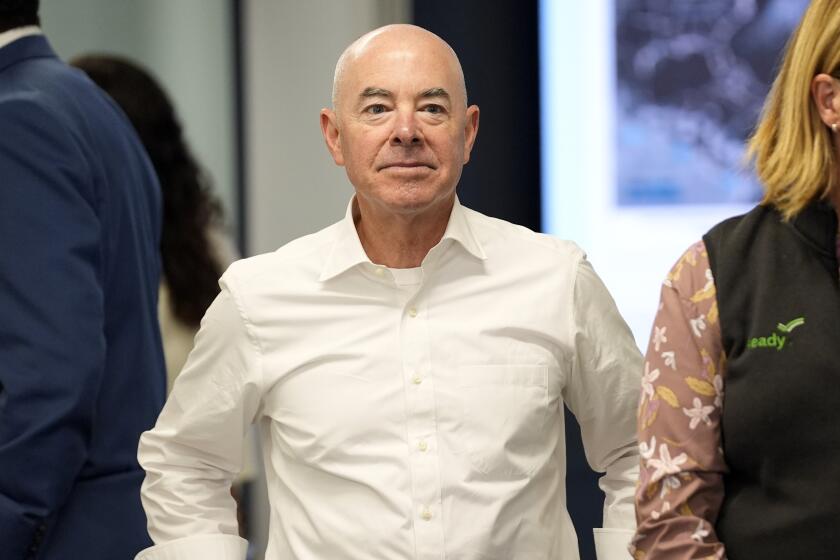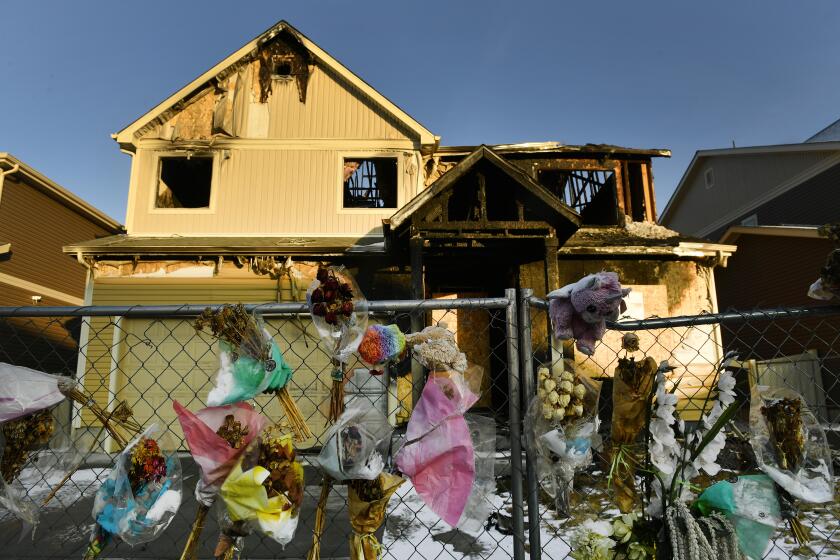Top Rights Lawyer in Mexico Found Slain in Her Office
One of Mexico’s most respected human rights lawyers, who had been threatened in the past and survived one assassination attempt, was shot to death, Mexico City’s attorney general said Saturday.
Digna Ochoa, a defender of the country’s leftist Zapatista rebels, peasant environmentalists and other activists, was found dead in her office in the capital Friday evening. There were no signs of robbery, and a note was found near the body threatening the same fate for unidentified others “if they continue.”
Ochoa, 37, won prominence for defending high-profile suspects in political cases, but she also defended simple peasants and street children, said Jesus Gonzalez, spokesman for the Miguel Agustin Pro Human Rights Center, where Ochoa was legal director until a year ago.
Ochoa had repeatedly been threatened with death and survived an assassination attempt in 1999. She was given police guards until she left the country last year to work for several months in the United States, but the protection didn’t resume when she returned in April and started an independent human rights law practice.
The killing poses a major challenge to the center-left Party of the Democratic Revolution, or PRD, which governs the capital, as well as to Mexican President Vicente Fox of the center-right National Action Party, who took office in December pledging to end a culture of impunity and instill the rule of law.
Ochoa knew she faced risks in defending political cases. She told Amnesty International in a letter in February 2000, “There is no doubt that the reason for this hostility is precisely the defense and promotion of human rights we carry out each day, for due to our constant denunciations, we upset interests, institutions and authorities.”
Amnesty awarded her its Enduring Spirit Award last year, and a Latin American human rights group based in El Salvador honored her with its annual medal in 2000.
Ochoa was born in Veracruz state, daughter of a union leader who was jailed and tortured for his involvement in peasant rights issues. Ochoa told interviewer Kerry Kennedy Cuomo in 1999 that her father’s treatment “led to my determination to do something for those suffering injustice because I saw it in my father’s flesh.”
Her legal work focused in part on the persecution of political activists in the Pacific coast state of Guerrero, site of many of Mexico’s most violent conflicts and home to the small Popular Revolutionary Army. She defended several of its members.
She also led the defense for two peasant environmentalists, Rodolfo Montiel and Teodoro Cabrera. They earned international acclaim for working against deforestation in Guerrero but later were convicted of marijuana cultivation and arms possession--charges that Ochoa claimed were trumped up to distract attention from their ecology campaign.
In October 1999, she was overpowered by two men in her home who tied her up and blindfolded and interrogated her for nine hours about the Miguel Agustin rights group, whose offices were later ransacked. As the men left, they opened the valve of a gas cylinder in the room, but Ochoa wriggled free and escaped.
Mexico City Atty. Gen. Bernardo Batiz told reporters Saturday that Ochoa was killed with two shots from a semiautomatic .22-caliber pistol, one to the leg and one to the head. Batiz said a note specifically threatened the PRD. The note added: “You have been advised. This is not a trick.”
Batiz said police guards were assigned to several prominent lawyers and activists after the killing. He said those under protection include the staff of the Miguel Agustin center.
Daniel Wilkinson, researcher on Mexico for Human Rights Watch, said the government’s failure to investigate the previous threats adequately “creates the climate in which people think they can get away with political killings. This is an opportunity for the Fox government to show it is more serious than previous regimes in getting to the bottom of these cases and making sure it is safe to work for human rights in Mexico.”
More to Read
Start your day right
Sign up for Essential California for news, features and recommendations from the L.A. Times and beyond in your inbox six days a week.
You may occasionally receive promotional content from the Los Angeles Times.






